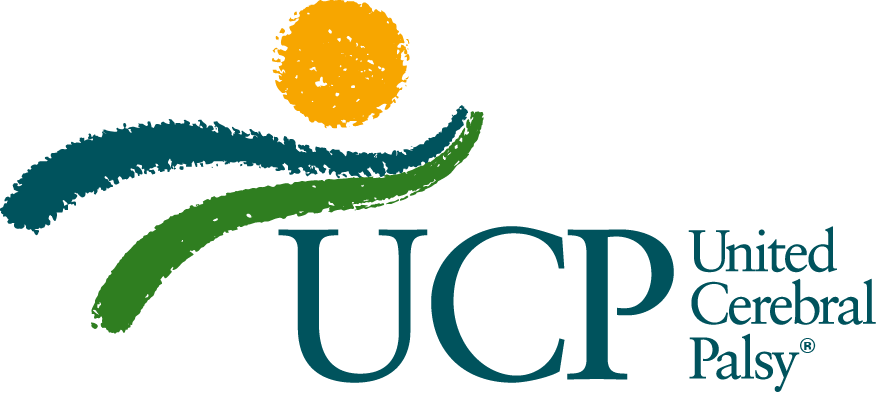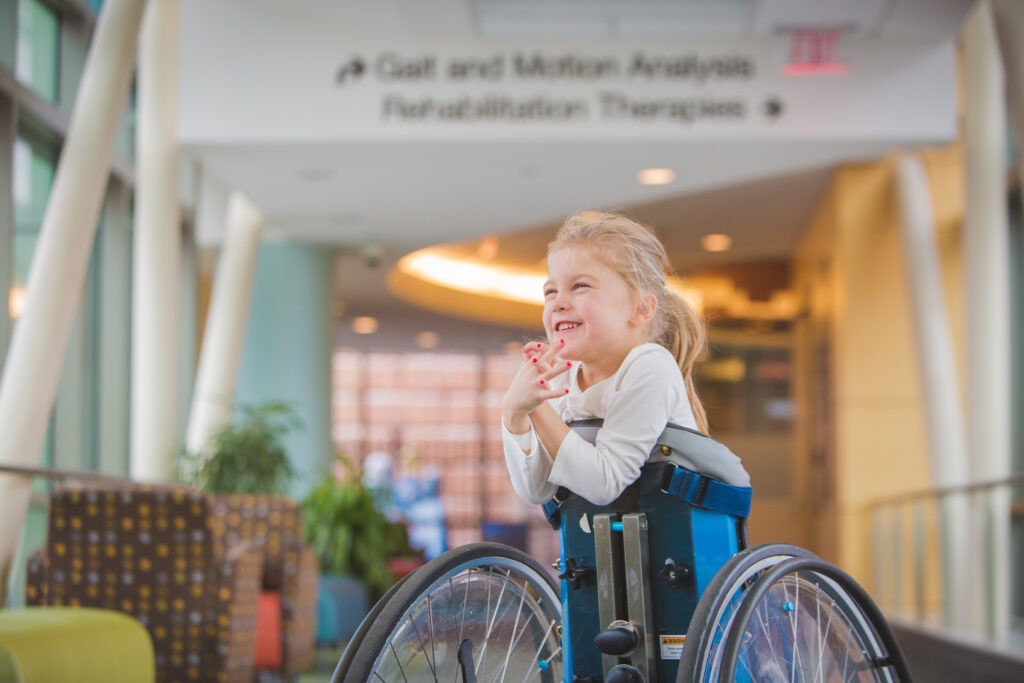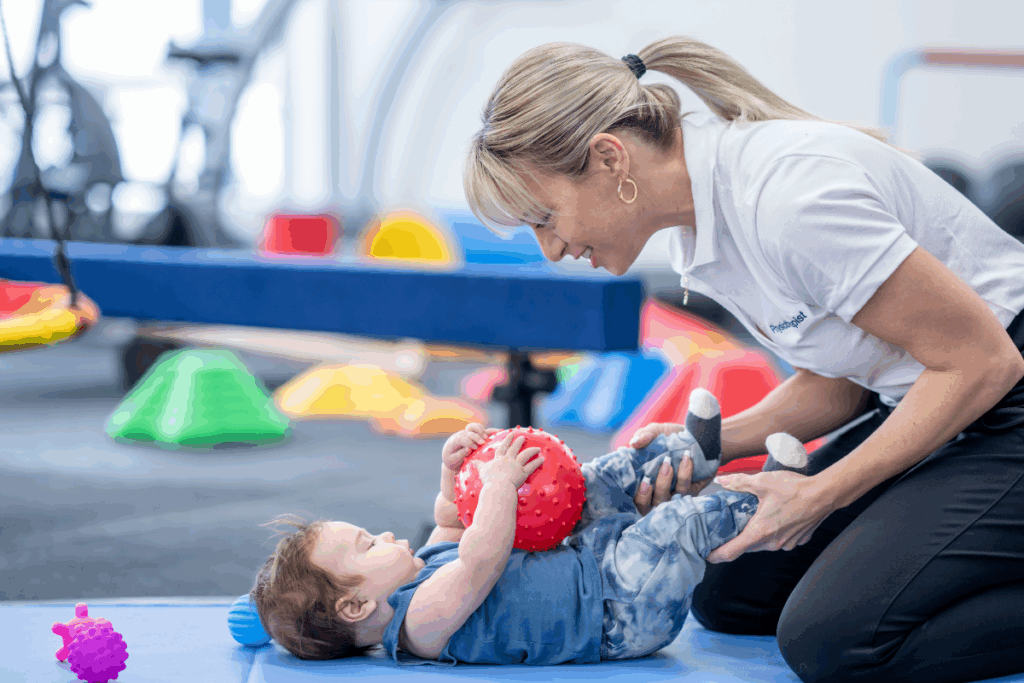The United Cerebral Palsy Research Initiative for the second year will begin accepting grant applications for awards of up to $20,000.
“Research into the causes behind early brain injury and the genetic determinants of disorders and disease, such as rare mutations, are changing what we’ve learned about neurodevelopmental disorders.”
— Dr. Michael Kruer
VIENNA, VIRGINIA: The United Cerebral Palsy Research Initiative for the second year will begin accepting grant applications for awards of up to $20,000 on National Cerebral Palsy Awareness Day, March 25, for translational research addres¬¬¬sing early diagnosis and treatment of cerebral palsy and related neurodevelopmental disabilities.
“These are very exciting times in the world of scientific research into the causes and treatments of cerebral palsy,” said UCP President and CEO Armando Contreras. “The goal of our grant program is to help fund cutting-edge science, including genomic research and other groundbreaking methods of diagnosis, that help identify and treat cerebral palsy and other IDDs as soon as possible in a person’s life.”
Cerebral palsy (CP) is the most common physical disability in childhood, affecting both movement and posture. Although causes vary, cerebral palsy is a developmental disorder caused by abnormal development or damage to motor systems before, during, or shortly after birth. About 1 in 345 children born in the U.S. are diagnosed with cerebral palsy, and some 17 million people worldwide have CP. There is no cure for cerebral palsy, but recent research has shown as many as 30 percent of all cases may have genetic links.
“Early detection of cerebral is a paradigm shift in diagnosing and treating cerebral palsy. The UCP grant program is part of an effort by our national organization to translate research into transformative treatment of cerebral palsy and other neurodevelopmental disabilities,” said Valerie Pieraccini, Executive Director of Therapy and Early Learning at UCP of Central Arizona and co-chair of the UCP Research Committee. “The UCP Research Committee is also providing training for practitioners in our affiliates, the people who work directly with children and adults with CP. By offering scholarships to empower clinicians to participate in research as well as use evidence-based interventions in practice, UCP hopes to create hope for those with CP in communities across our nation that our affiliates serve.”
The Research Committee’s co-chair is Dr. Michael Kruer, director of the Cerebral Palsy & Pediatric Movement Disorders Program at Phoenix Children’s Hospital and associate professor of Child Health Genetics, Neurology and Cellular & Molecular Medicine at the University of Arizona College of Medicine in Phoenix.
Kruer said breakthroughs in genomic research are helping people living with cerebral palsy and other neurodevelopmental disabilities through better understanding that results in individualized diagnosis and treatment.
“Research into the causes behind early brain injury and the genetic determinants of disorders and disease, such as rare mutations, are changing what we’ve learned about neurodevelopmental disorders,” said Kruer. “The one thing we’ve known for many years is that diagnosing and treating children with CP as early as possible is the best way to help them live long and independent lives.”
Applicants this year will be asked to first submit a letter of intent describing the subject and scope of their research project. The program will award grants to projects aimed at advancing clinical and translational research that bridges the gap between research and care and helps transform the lives of children and adults with cerebral palsy and related neurodevelopmental disabilities.
Applications on any topics relevant to cerebral palsy and related neurodevelopmental disabilities will be accepted from researchers and clinicians in the U.S. and Canada, though preference will be given to projects focused on early diagnosis and early treatment of cerebral palsy and those from either UCP affiliates or researchers who collaborate with one or more of our affiliates. Both biomedical and therapy-focused studies are welcomed.
The UCP Research Committee will award grants of up to $20,000. Researchers in the U.S. and Canada are eligible to apply. This marks the second year for the program.
Applications will be available on UCP’s website beginning March 25. The deadline to apply is June 9, 2023 with a letter of intent to apply due on April 14, 2023. Grants will be awarded in late August.
For more information, go to ucp.org or send questions to research@ucp.org.
About United Cerebral Palsy
The mission of United Cerebral Palsy is to be the indispensable resource for people with cerebral palsy, Down syndrome, autism spectrum disorder and other neurodevelopmental disabilities. Founded in 1949, UCP has 56 affiliates (54 in the U.S. and two in Canada) that provide a wide range of services annually to more than 150,000 children and adults, including resources and referrals, advocacy, research, educational instruction, early intervention, physical therapy, job training, integrated employment, home and community-based services, recreational opportunities and housing assistance. UCP also advocates for direct support professionals (DSPs) and other direct care workers. We believe all people with disabilities should be treated as equal members of an inclusive society so they can “live life without limits.”
##




